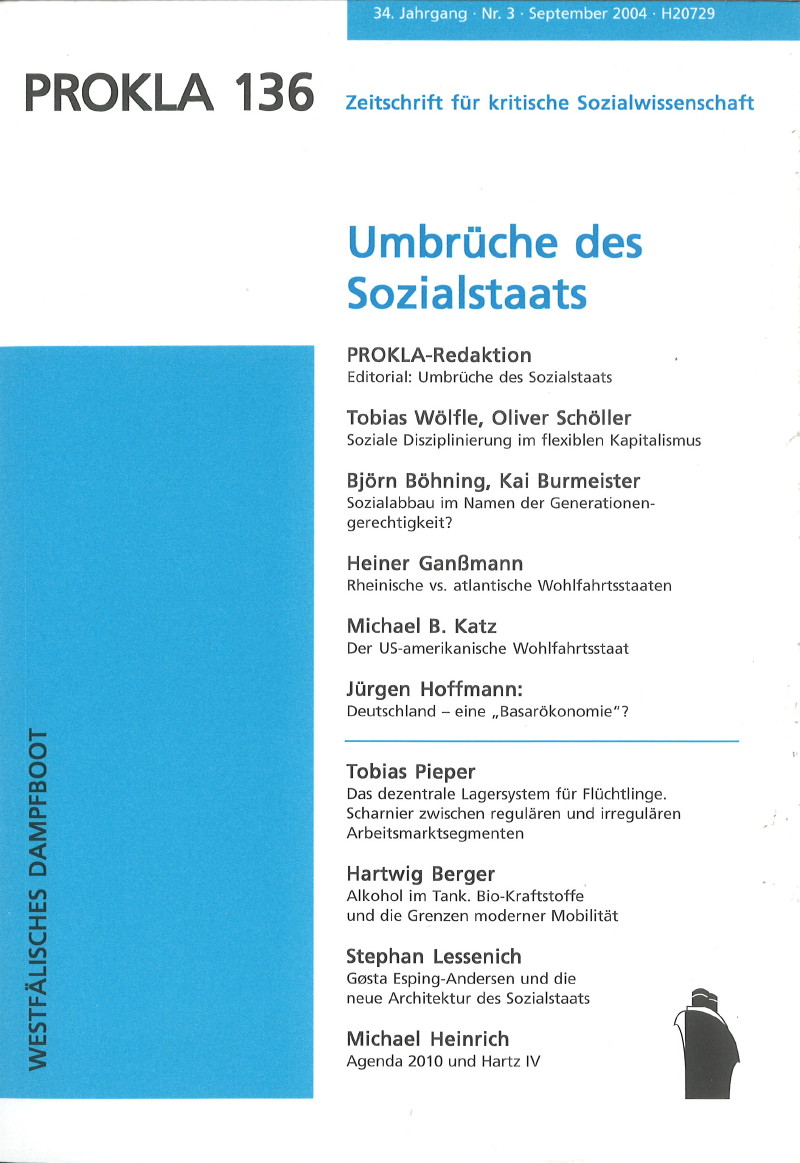Rheinische vs. atlantische Wohlfahrtsstaaten: stabile Gegensätze oder verschwindende Unterschiede?
DOI:
https://doi.org/10.32387/prokla.v34i136.621Schlagworte:
Wohlfahrtsstaat, Ökonomie, Sozialpolitik, USA, EuropaAbstract
One of the main questions in recent debates on the future of welfare states has been whether globalization or structural economic change will lead to convergence. To answer that question, the liberal welfare state of the United States and the conservative continental European welfare states are related to differences in the respective capitalist economies, using Soskice´s distinction of liberal and coordinated market economies. Welfare states are described in terms of their performance in three fields: protection against labor market risks, protection against poverty and reduction of income inequalities. Performance differences remain impressive and can be summarily ascribed to the continuing dominant reliance of US capitalism on the threat of immiseration to induce work performance. While continental European production regimes typically use more positive work incentives, some pressures in European economies, especially the relentless push for income redistribution in favor of the rich and the weakness of unions, increase the probability of convergence.






